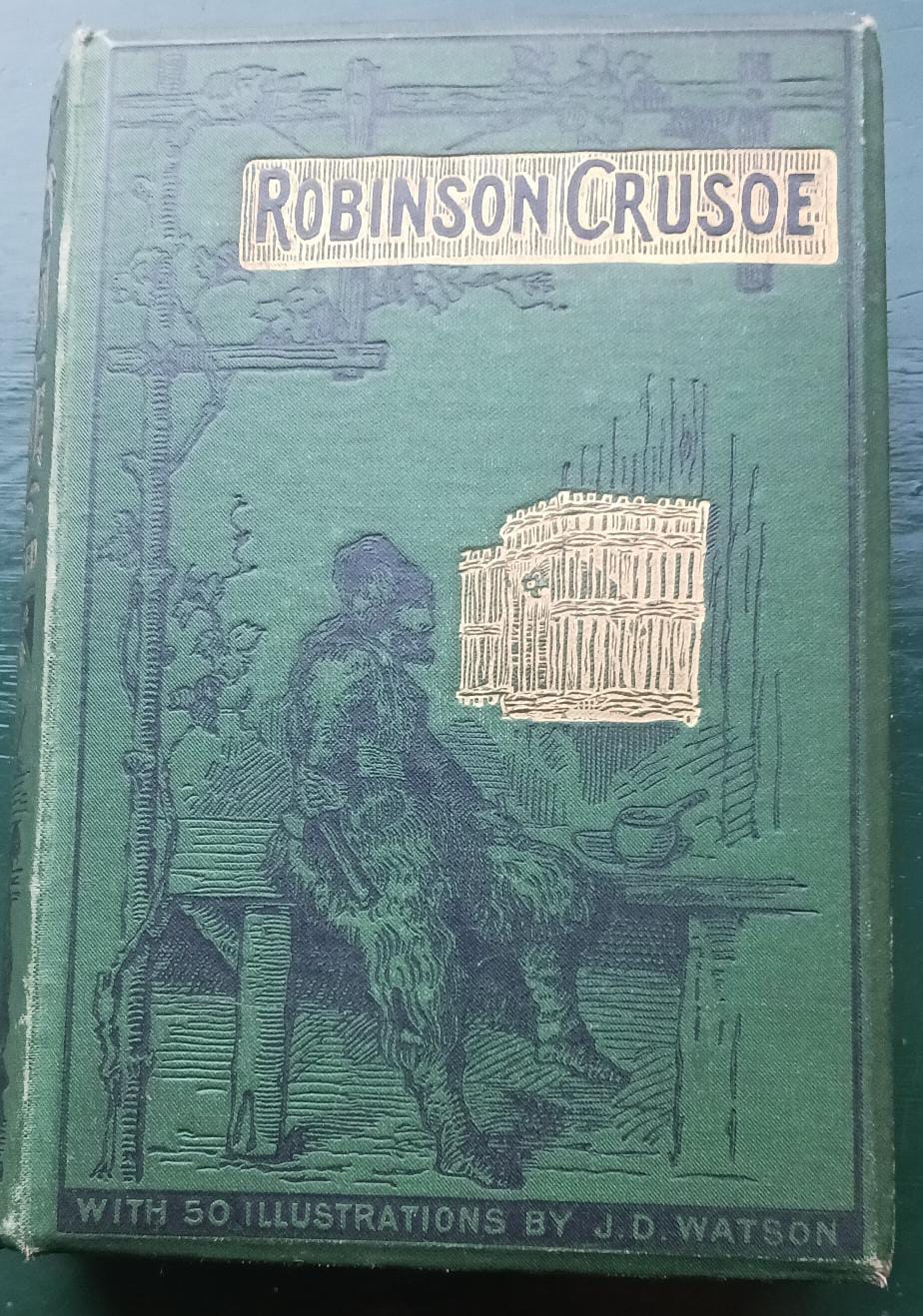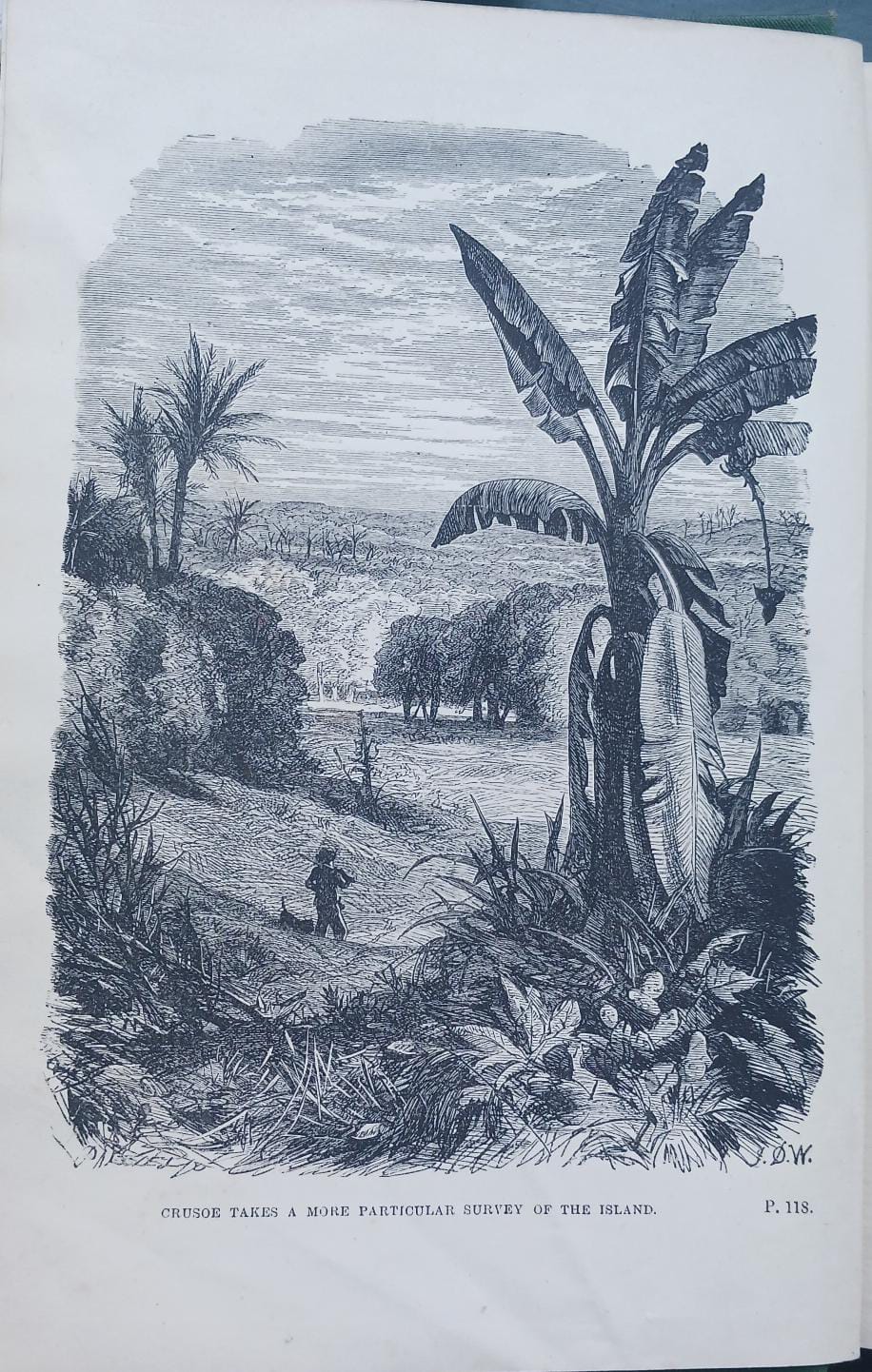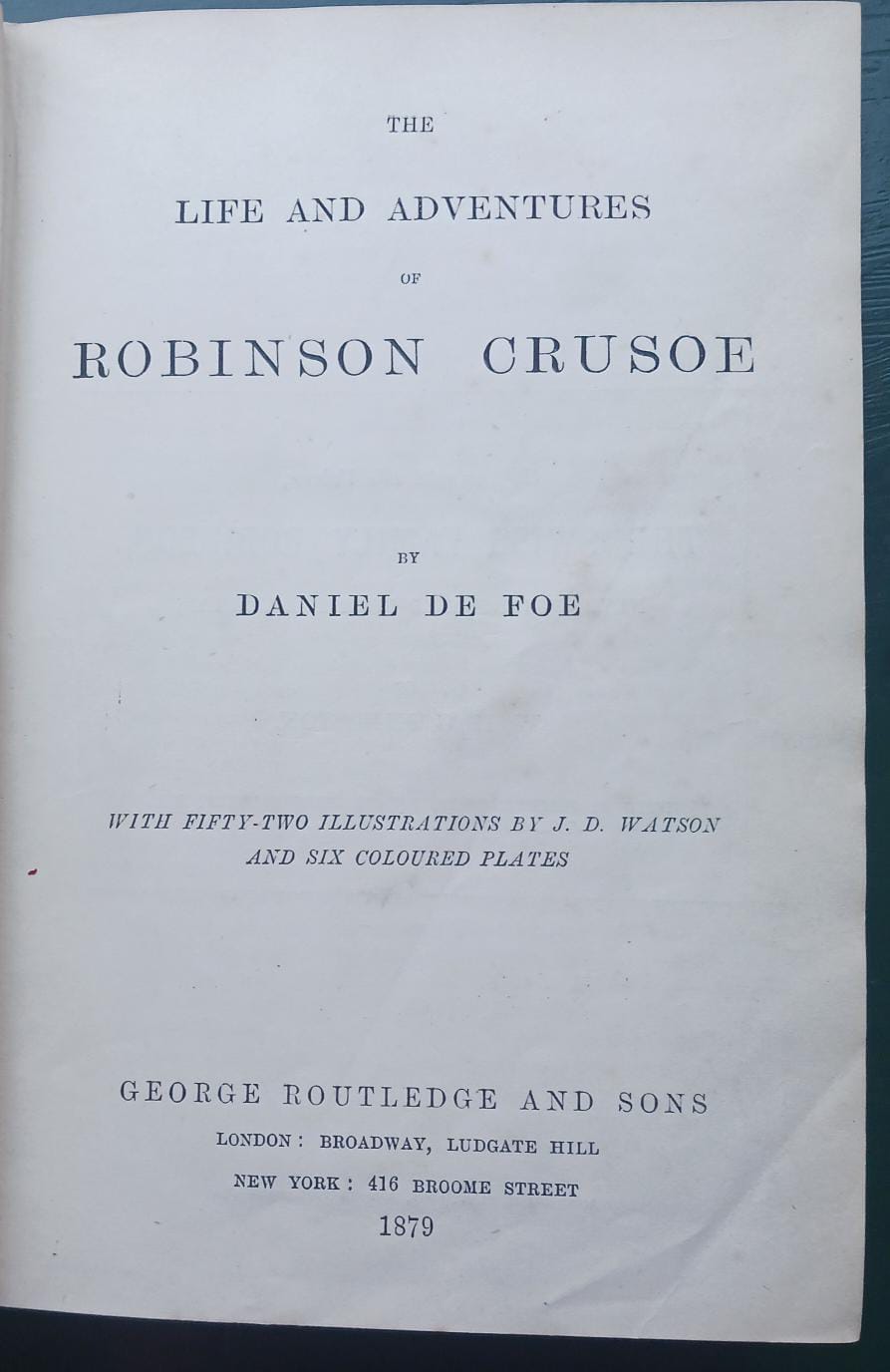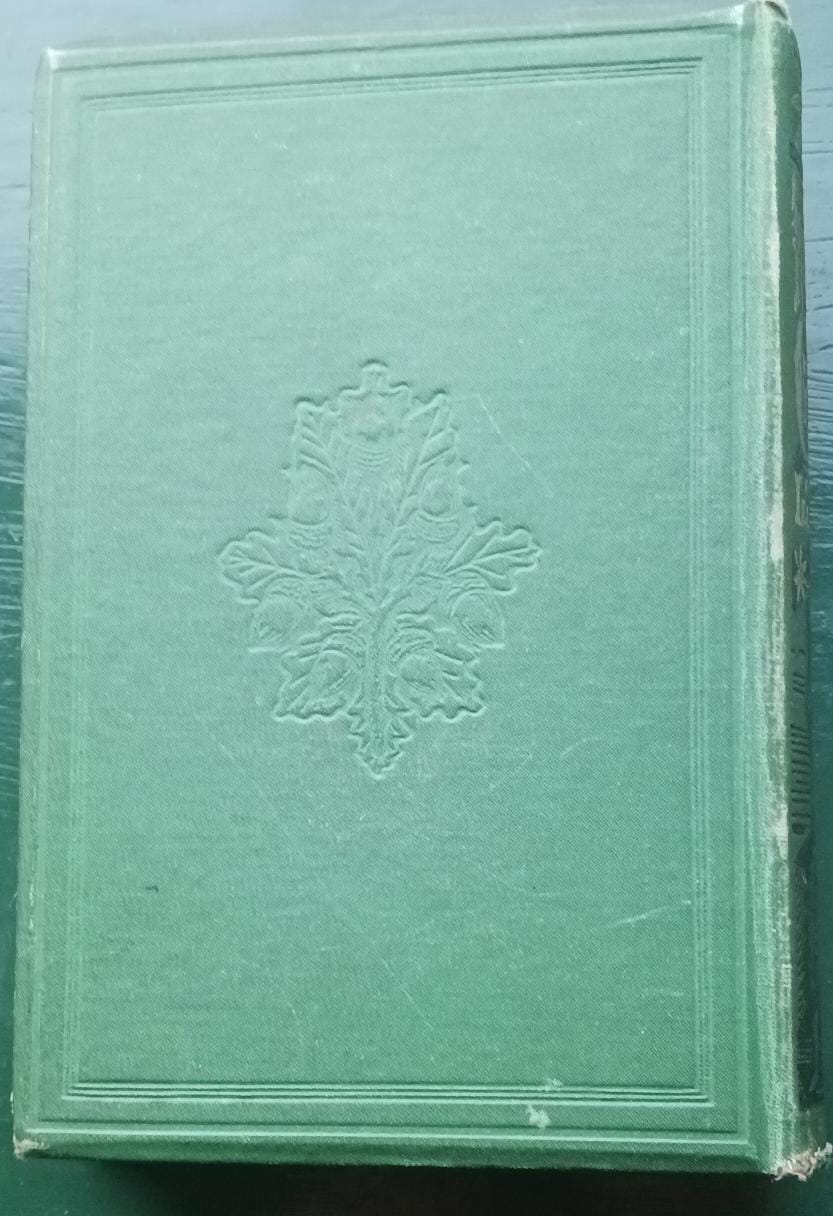Robinson Crusoe by Daniel Defoe is a seminal work in English literature, often considered one of the first novels. Published in 1719, it recounts the life of Robinson Crusoe, a young man driven by an insatiable desire for adventure. Ignoring his father’s warnings, Crusoe embarks on a series of voyages that ultimately lead to disaster. After a shipwreck, he finds himself stranded on a remote, uninhabited island off the coast of South America. Armed with a few salvaged supplies, Crusoe learns to survive through sheer determination and ingenuity, mastering skills such as farming, hunting, carpentry, and even taming wild animals.
The novel chronicles his 28 years of isolation, during which Crusoe undergoes profound personal and spiritual growth, turning to religion and attributing his survival to divine providence. His solitude is disrupted when he discovers evidence of cannibals on the island. Eventually, he saves and befriends a native man, whom he names Friday, introducing themes of cultural interaction, dominance, and colonial attitudes.
Through meticulous detail, Defoe explores themes of human resilience, the struggle for survival, and the complexities of colonialism and morality. Crusoe’s narrative is not just an adventure but also a reflection on self-reliance, faith, and the drive to adapt and thrive in the face of extreme adversity. The novel’s influence on literature and its enduring themes make it a cornerstone of the Western literary canon.










Reviews
There are no reviews yet.